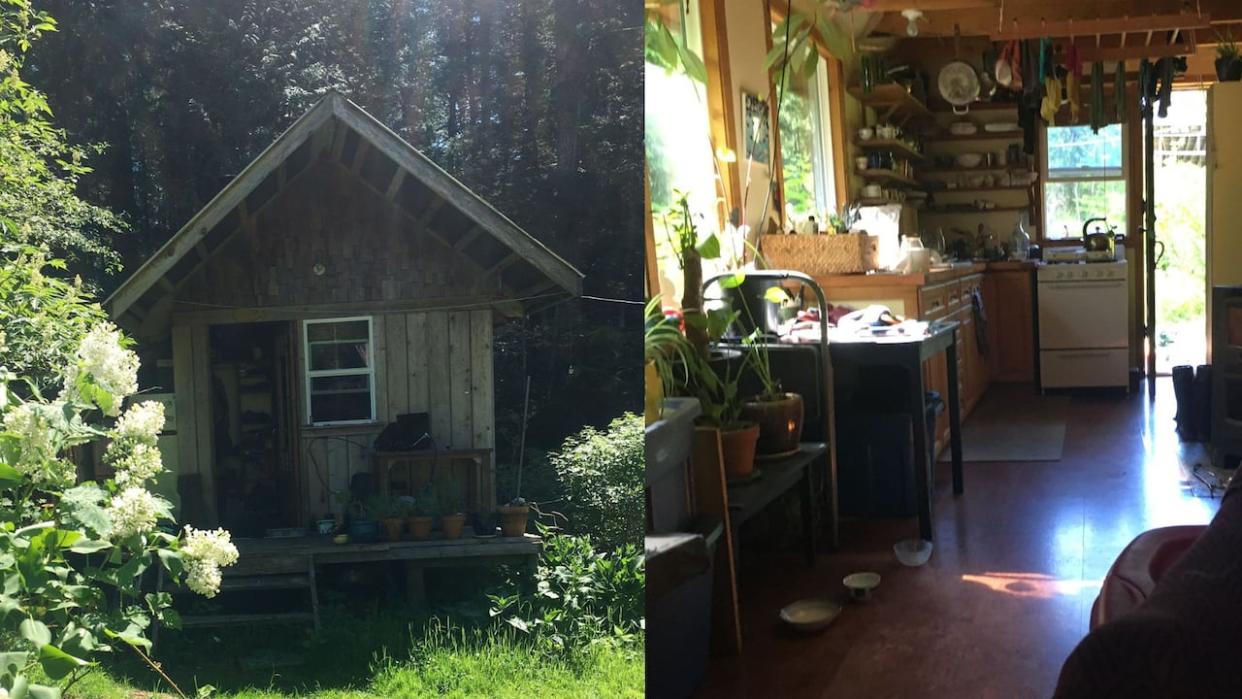This remote B.C. island hopes a tax on short-term rentals will solve its housing crisis

Heather Smith has lived on Cortes Island for four years, and in that time she's been forced to move four times after her rent was raised each time.
"Some people move every six months," she said of the remote community, whose population of around 1,200 can double during the summer as tourists flock to the island, according to the regional district.
That popularity combined with rising rent has left many residents struggling to find suitable homes, with a 2019 report saying more than a third of housing on Cortes — one of the Discovery Islands northeast of Vancouver Island — is now tourist accommodation.
A recent housing survey conducted by the community found 10 per cent of residents are living in unstable housing, said Mark Vonesch, the Strathcona Regional District representative for the island.
"So it's either unsuitable or too expensive," Vonesch told CBC On The Island guest host Kathryn Marlow, adding that some tenants even have an agreement with their landlord to move out during tourist season.
In an effort to combat the lack of housing for residents, the regional district is now applying a three per cent municipal and regional district tax (MRDT) on vacation rentals, with the money raised going toward affordable housing projects.
The tax applies to Airbnb, VRBO and other short-term rentals that make more than $2,500 in profit annually.
Vonesch says it's the first time in the province's history a community is using all of the funds collected from the MRDT toward housing.

Cortes Island is a remote community of about 1,200 full-time residents, but its population doubles with tourists during the summer, the regional district says. (Doug Husby/CBC)
CBC has contacted the Ministry of Finance for comment but has yet to receive a reply.
Short-term rentals mostly empty: Vonesch
A 2019 study conducted by McGill University found short-term rentals displaced nearly 14,000 units from B.C.'s long-term housing market.
Vonesch says there are over 100 short-term rentals on Cortes, most of which are unavailable to full-time renters and remain empty most of the year.
According to a 2019 report, rental homes made up 34.6 per cent of total households on the island. It also found the median monthly rent was $694 and nearly half of the renters spend 30 per cent or more of their income on housing.
Smith says housing is either too expensive or substandard, with many homes not even having a bathroom.
She says the tiny home she rents has minimal electricity and a garden hose in place of a shower.
"I feel like [finding] better housing is impossible," she said.
The lack of affordable housing has also caused significant labour shortages on the island, said Smith, a supervisor at Cortes Natural Food Co-op and Cafe, which she says is chronically understaffed.
Tax funds directed to housing initiatives
Vonesch said he does not want to ban short-term rentals and acknowledged tourism is an important part of the community's economy; instead, he wants to better regulate short-term rentals to ensure the market is fair for local residents.
The MRDT was initially set up by the province to raise money for tourism advertising, but as of July 1, following legislation amendments, Cortes Island has been putting the proceeds of the tax toward affordable rental housing development in the community.
Vonesch says the tax, which should bring in about $50,000 per year, will go to the non-profit Cortes Housing Society, which is spearheading affordable housing initiatives in the region.
The funds will support the development of the society's 24-unit Rainbow Ridge rental project. Sixteen units, each containing between one and three bedrooms, will be priced below market value, and eight will be prioritized for professionals such as doctors or nurses.
About 175 people are already on the waitlist for the project, Vonesch said.


